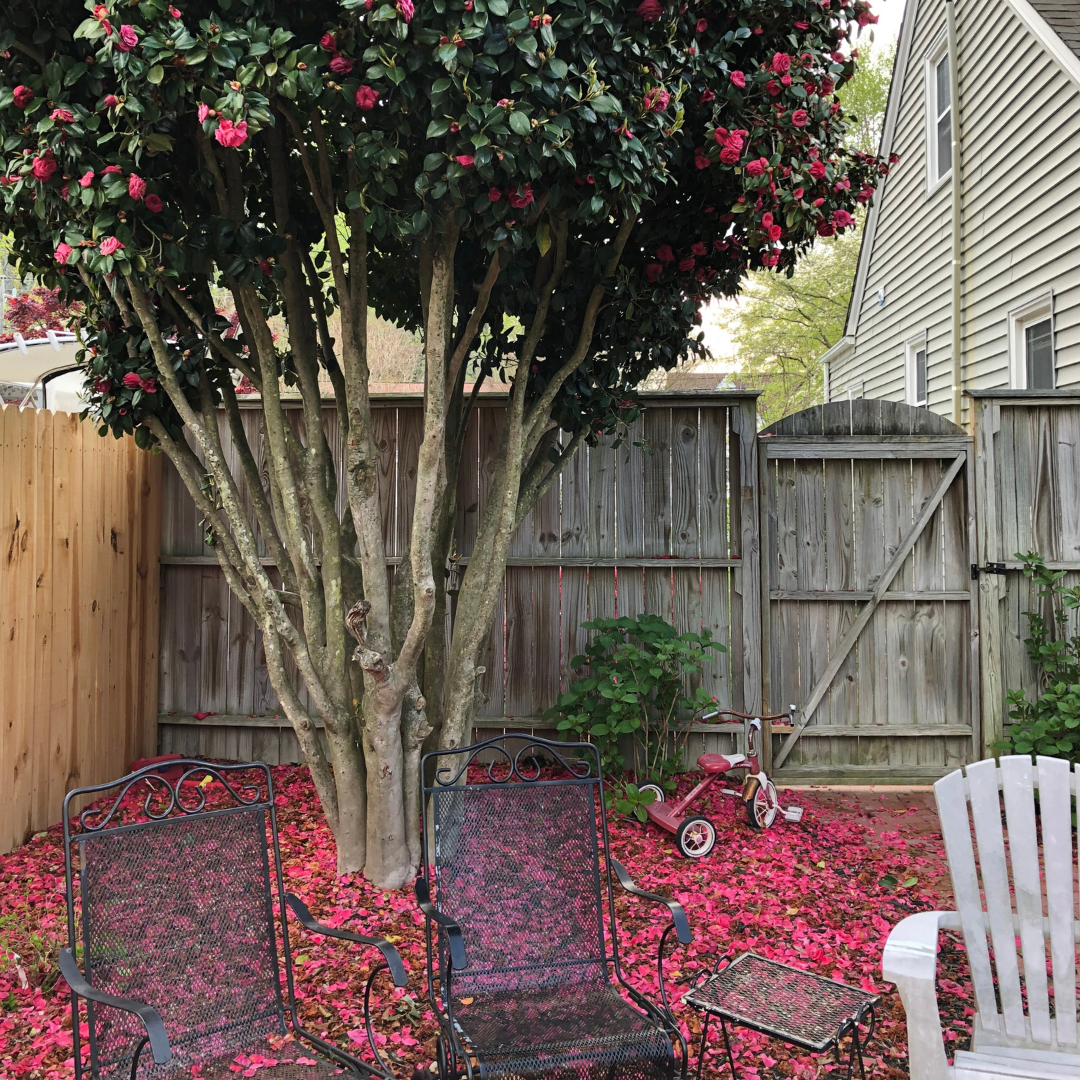
Let’s Tell Stories About Our Souls
I’ve been thinking lately about the stories we’ll tell when this is over. I imagine us cozied up around fire pits, gathered around dining room tables, and lingering over church pews. I imagine front porches lit up late into the night while the kids catch fireflies in the yard. I imagine we’ll squeeze as many people into our schedules as possible, forgetting about whatever fear we used to carry about hospitality and opening up our homes. We’ll do whatever it takes just to be in the physical presence of friends, family, neighbors, and church communities.
What will we say?
There will be funny stories, ones where we admit hiding soft toilet paper rolls in the upstairs master bathroom. Or embarrassing conversations we started with strangers, store clerks, and anyone who would listen because we just wanted to talk face-to-face with another human being. Maybe some of us will reveal the exact number of movies we watched and our exorbitant daily screen time averages. We’ll have to admit to all the crazy antics with our kids and the creative outlets we spent our time on—possibly for nothing other than simply following through with an idea for a parody about our dislike of Zoom.
There will also be sober accounts. We’ll talk about the fear we faced when our kids ran a fever or our spouse started coughing in the middle of the night. Many will admit anxiety over the pay cuts and layoffs from work, the hours searching for a new job or the hesitation—but necessity—to start accessing retirement funds. Some will bear physical, emotional, and mental scars from being bedridden in a crowded hospital, but still feeling very much alone. Many will carry grief over loved ones who succumbed to the pandemic, and lost the fight.
We’ll rally around one another, free to offer the hugs we ached to give for the weeks we were apart. We’ll talk about deliverance from the pandemic and the fact that it’s behind us. We survived, we’ll say. And it will be good and right to say it. Our stories are necessary. Remembering is important. We need to erect ebenezers when they’re fresh, so when we’re old and gray, and our grandchildren climb up into our laps, or sit at our feet at the family picnic, we can recount all the ways we survived COVID-19.
But I hope our stories don’t end there.
I hope we’ll get to the end of this pandemic and be able to join with the psalmist and say:
“Come and hear, all you who fear God, and I will tell what he has done for my soul.”
Several years ago, after a prolonged season of grief, I came across Psalm 66 in my Bible reading. I instantly tethered my heart to its message because it communicated so clearly what God had done for me. God had allowed challenges, grief, and what felt like—in the words of this psalm—“a crushing burden” and “going through fire and water”. I hadn’t been delivered from my circumstances. Life was still full of hardship, and there were days when I cried to God for relief, answers, and an easier path forward.
Yet, for all the ways I was still struggling, I felt peace, healing, and renewal. After the psalmist talks about the difficulties God allowed in the lives of his people, he says God brought them to a place of abundance.
This was my story. Through the crushing and often debilitating season of grief, God showed me the abundant life found in him. Not in a happy ending to my trials. Not in relief from pain and struggle. But abundance because he is with me. He loves me. He delights in me. And he’s never going anywhere or removing his love from me.
My circumstances didn’t change but my love for my Savior grew. In Jesus’ arms, I found the place of abundance.
We’re not told the specifics of this psalmist’s deliverance, but he alludes to it toward the end of the psalm. God had answered his prayer and he was beyond grateful. Yet for all the circumstantial blessings God provided, and the ways this individual experienced personal deliverance, I find it so interesting that he chose to fixate on something other than his circumstances.
He could have said, “Come and hear, and I’ll tell you a story about how God delivered me from my enemies.” Or he could have relayed all the ways in which God specifically answered his request. Perhaps he did this around the table with his family and friends, but what we have recorded in scripture, is his emphasis on God’s work in his soul.
“Come and hear, all you who fear God, and I will tell what he has done for my soul” (Psalm 66:16)
Ultimately, if we are his people, God has done a work in our souls that can never be destroyed. Jesus said no one can take us out of his hand, and Paul reminds us that nothing can separate us from the love of God in Christ Jesus. Our souls are permanently attached to God. Why? Because of his steadfast love. A love that latches on of its own initiative and doesn’t let go. His love never diminishes or changes.
God’s work in our souls through Christ’s life, death, and resurrection, is permanent. What greater thing is there to praise God for than our salvation? I can think of nothing.
Not only is his work secure and fixed for eternity, but it’s also ongoing. God will not stop the work he started in us; he’ll bring it to completion. And all the things he allows—the crushing burdens, the fire and water—those are evidence of his love. He’s trying us, sifting out those things which need to be removed in order to prove our faith and purify our souls.
As we wrestle with our current struggles related to COVID-19, and the many emotions we feel during this unique season of loss, grief, abnormal circumstances, and immense stress, I hope we’re paying attention to our souls.
I hope we’re taking note, aware of the moments when we feel anxious, afraid, vulnerable, confused, and discontent. I hope we’re taking the time to wonder why we can’t seem to stop eating, baking, or creating something to look forward to. I hope as we watch the news and grow more fearful of the days to come—a post-coronavirus world—we’re questioning what’s at the root of our swirling thoughts.
For me, it happens in the early hours of the morning, when I open my Bible and remind myself of what’s true: God, his word, the gospel, and all the blessings that are mine in Christ. But it also happens at the grocery store when I’m irritated at the lack of toilet paper and the discomfort of wearing a mask. It happens on a run when I set the earbuds aside and give space and attention to my angst. Paying attention to our souls requires time and a willingness to be uncomfortable. Because if you’re anything like me, more often than not what’s revealed in those reflective moments is sin, doubt, and misplaced affections.
But can I tell you something? This is God’s grace to us. He won’t leave us alone because he loves his people and he longs for us to love him with our whole mind, heart, strength, and yes, soul. He’s at work in our souls, constantly. Will we engage with him there in eager expectation and wonder?
I hope we get to the end of this and say: God gave me peace when I felt anxious that day I went to the store and couldn’t find toilet paper again. God met me in my moments of fear and ministered to me with the promise of his presence. God enabled me to resist the temptation to indulge in alcohol, more desserts, Netflix binges, and lashing out at my kids. God gave me victory over my sin, healing from my pain, and comfort in my loss.
I can imagine we’ll gather around the table and on the front porch when this over and tell our stories. I can’t wait. But let’s get even more excited about the ways we’ll be able to praise God for the work he’s done in our souls.
I’d encourage you to take the time to read through Psalm 66 on your own. If nothing else, look for all the ways the psalmist teaches us about God’s character, and what he’s done for his people. He is worthy of praise.

